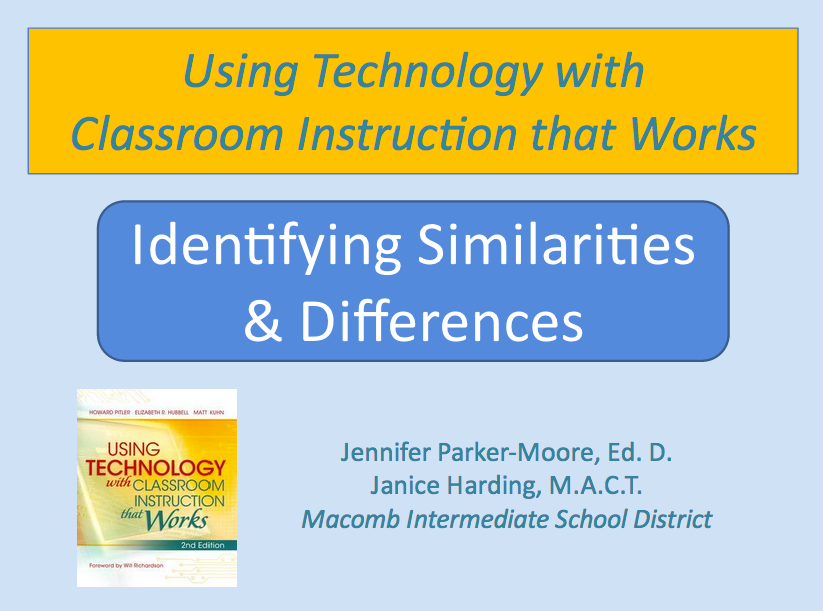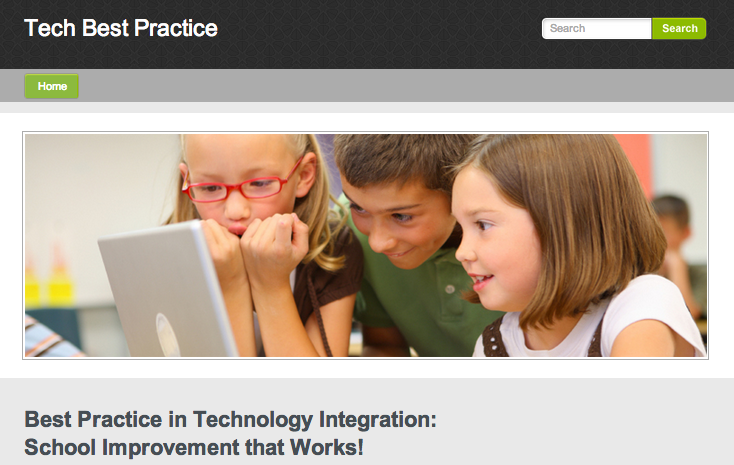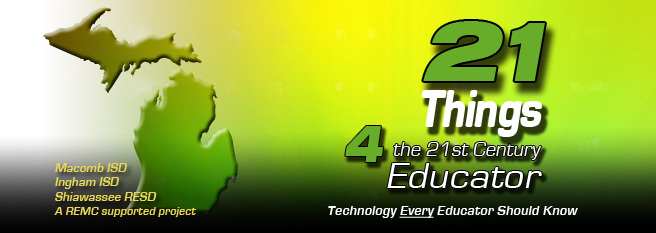8: Identifying Similarities and Differences
| Site: | Alma |
| Course: | TRIG: Classroom Readiness T3 |
| Book: | 8: Identifying Similarities and Differences |
| Printed by: | Guest user |
| Date: | Monday, December 29, 2025, 5:17 PM |
Description
Resources and activities to learn about Identifying Similarities and Differences
What is Identifying Similarities and Differences?
Identifying Similarities and Differences is found in the Blue Zone of the Framework for Instructional Planning. The Blue Zone is also known as Helping Students Extend and Apply Knowledge.
Strategy |
McREL Definition |
|
Identifying Similarities and Differences |
Enhance students' understanding of and ability to use knowledge by engaging them in the mental processes that involve identifying ways items are alike and different. (UTCITW p. 8) |
View the video for an introduction to this category of instructional strategies.
To continue to the Instructional Resources for Identifying Similarities and Differences, click on the arrow in the lower right corner or navigate using the Table of Contents on the left hand side of your screen.
Instructional Resources
1. Click on the image below to view the Identifying Similarities and Differences presentation. (Note: The presentation will open in a new window or new tab depending on your browser settings. The course will remain open in the other window or tab.)
Suggested Text Reading: Chapter 8, pages 183-203, in “Using Technology with Classroom Instruction that Works, 2nd ed.”
After viewing the Presentation on Identifying Similarities and Differences, consider the opportunities to use classifying, similes, and metaphors in your lesson. Either create some similes or metaphors that could be part of your lesson, or try a Venn diagram or another organizer from Gliffy to help students classify concepts, objects, or ideas related to your lesson. Add your choice to your copy of the Lesson Plan Template and be ready to share in the Blue Zone Discussion Forum when you complete this category of strategies. You will share a screenshot of your visual organizer or a short reflection regarding the similes and metaphors, or use another idea from the presentation and be prepared to share it.
2. The Tech Best Practice website contains resources that support Identifying Similarities and Differences. Refer back to the presentation and review the slides for examples of ways to use technology with Identifying Similarities and Differences. Use the links on the Tech Best Practice website to help you select the technology tools you are going to incorporate into your lesson.
Click on the image below to go to the Tech Best Practice website.
3. Visit the 21 Things 4 Teachers website and use the tutorials to learn how to use the technology resources that support this category of instructional strategies.
Refer back to the presentation and review the slides for examples of ways to use technology with Identifying Similarities and Differences. Use the tutorials on the 21 Things 4 Teachers website to learn to use the technology tools you are going to incorporate into your lesson.
Click on the links below to access the tutorials that support this category of strategies.
- Thing 8 – Visual Organizers (Exploratree, Bubbl.us, Gliffy)
- Thing 12 – Evaluation & Assessment (Spreadsheets, Charts)
- Thing 13 – Interactive Learning (Thinkfinity, Read-Write-Think)
- Thing 16 - Research & Reference (MEL, Google Scholar)
Check for Understanding
Your next task will be to complete a short, ten question quiz to check your understanding of this category of strategies. You will only have one attempt to complete the quiz, but you may use notes and resources to help you respond. Your coaches and administrators may choose to review the quiz data for tech readiness and professional development planning.
Click here to take the Quiz: Identifying Similarities & Differences.
Note: You can also access the quiz directly from the front page of this module.
You are now ready to move on to the next activity: 9: Generating and Testing Hypotheses


